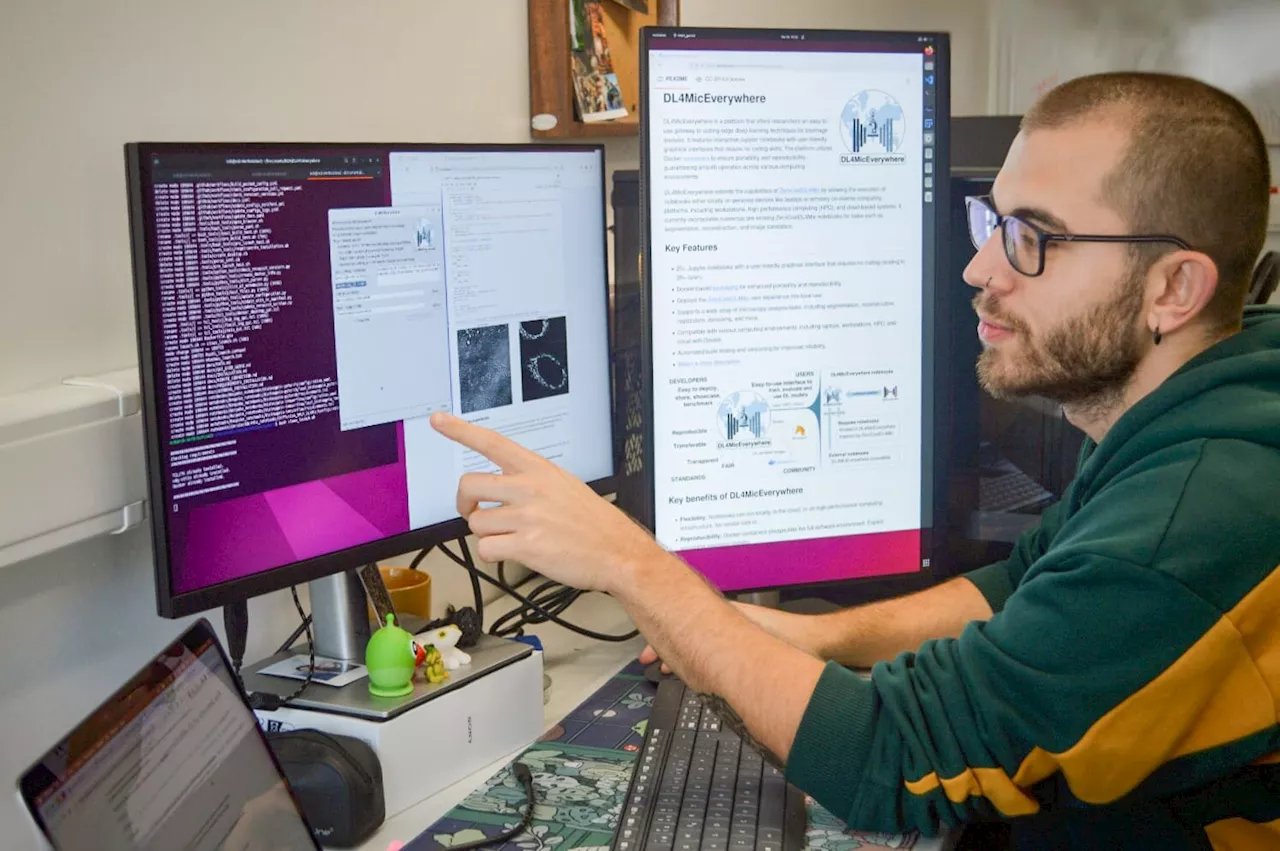Researchers have found that a strain of gut bacteria can boost immune responses and enhance cancer immunotherapy to fight sarcoma tumors in mice.
Roughly one in five cancer patients benefits from immunotherapy -- a treatment that harnesses the immune system to fight cancer. Such an approach to beating cancer has seen significant success in lung cancer and melanoma, among others. Optimistic about its potential, researchers are exploring strategies to improve immunotherapy for cancers that don't respond well to the treatment, with the hope of benefiting more patients.
Cancer immunotherapy employs the body's immune cells to target and destroy tumors. One such treatment uses immune checkpoint inhibitor drugs to unleash the immune system by releasing the natural brakes that keep immune T cells quiet, a feature that prevents the body from harming itself. But some tumors fight back to suppress the attacking immune cells, damping the effectiveness of such inhibitors.
Cohabiting mice share microbes with one another. The researchers suspected the effects might have been due to exchanges of gut bacteria. The researchers worked with Jeffrey I. Gordon, MD, the Dr. Robert J. Glaser Distinguished University Professor, and co-first author Blanda Di Luccia, PhD, a postdoctoral researcher, to study the microbes in the intestines of the mice that were treated successfully with immunotherapy.
Cancer Breast Cancer Lung Cancer Immune System Lymphoma Skin Cancer Colon Cancer
United Kingdom Latest News, United Kingdom Headlines
Similar News:You can also read news stories similar to this one that we have collected from other news sources.
 6 Subtle Ways Your Body Is Telling You That You May Have Gut InflammationA gastroenterologist shares the top six gut inflammation symptoms, or how to tell if your gut is inflamed. Plus: tips for healing your gut.
6 Subtle Ways Your Body Is Telling You That You May Have Gut InflammationA gastroenterologist shares the top six gut inflammation symptoms, or how to tell if your gut is inflamed. Plus: tips for healing your gut.
Read more »
 Researchers use reflectors underneath solar panels to boost solar powerThe University of Ottawa in collaboration with National Renewable Energy Laboratory developed an add-on to solar panels that increases their energy output by 4.5%.
Researchers use reflectors underneath solar panels to boost solar powerThe University of Ottawa in collaboration with National Renewable Energy Laboratory developed an add-on to solar panels that increases their energy output by 4.5%.
Read more »
 Researchers shed new light on carboxysomes in key discovery that could boost photosynthesisA research team led by the Hong Kong University of Science and Technology (HKUST) has discovered how carboxysomes—carbon-fixing structures found in some bacteria and algae—work.
Researchers shed new light on carboxysomes in key discovery that could boost photosynthesisA research team led by the Hong Kong University of Science and Technology (HKUST) has discovered how carboxysomes—carbon-fixing structures found in some bacteria and algae—work.
Read more »
 Researchers in Portugal develop an image analysis AI platform to boost worldwide researchA team of researchers from the Instituto Gulbenkian de Ciência (IGC) in Portugal, together with Åbo Akademi University in Finland, the AI4Life consortium, and other collaborators, have developed an innovative open-source platform called DL4MicEverywhere.
Researchers in Portugal develop an image analysis AI platform to boost worldwide researchA team of researchers from the Instituto Gulbenkian de Ciência (IGC) in Portugal, together with Åbo Akademi University in Finland, the AI4Life consortium, and other collaborators, have developed an innovative open-source platform called DL4MicEverywhere.
Read more »
![]() Researchers Use AI to Boost Metalens Camera Image QualityThe study's use of AI to improve the quality of metalens images could help make the technology far more viable.
Researchers Use AI to Boost Metalens Camera Image QualityThe study's use of AI to improve the quality of metalens images could help make the technology far more viable.
Read more »
 Researchers use AI to boost image quality of metalens cameraResearchers have leveraged deep learning techniques to enhance the image quality of a metalens camera. The new approach uses artificial intelligence to turn low-quality images into high-quality ones, which could make these cameras viable for a multitude of imaging tasks including intricate microscopy applications and mobile devices.
Researchers use AI to boost image quality of metalens cameraResearchers have leveraged deep learning techniques to enhance the image quality of a metalens camera. The new approach uses artificial intelligence to turn low-quality images into high-quality ones, which could make these cameras viable for a multitude of imaging tasks including intricate microscopy applications and mobile devices.
Read more »
